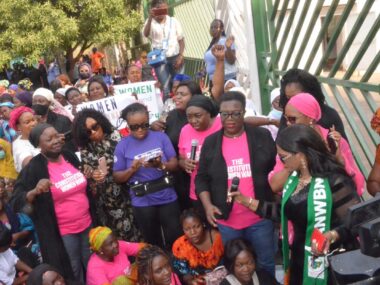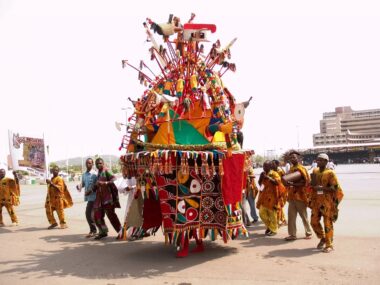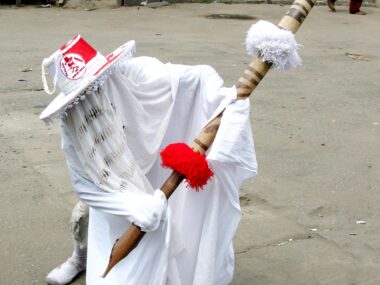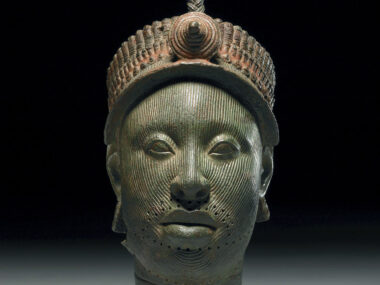Nigeria, a country with over 250 ethnic groups, is characterized by a rich tapestry of cultural traditions and social norms. Among these traditions, the role of elders holds a significant place. Elders are highly revered and play crucial roles in various aspects of community life, including decision-making, conflict resolution, the transmission of cultural values, and the maintenance of social cohesion. This respect for elders is deeply ingrained in the Nigerian ethos, cutting across different ethnic groups and religions. This essay delves into the multifaceted roles of elders in Nigerian communities, exploring their importance in governance, social structure, education, and cultural preservation.

Governance and Decision-Making
In traditional Nigerian societies, elders are central figures in governance and decision-making processes. Their roles often extend beyond their immediate families to encompass the entire community. This is particularly evident in rural areas where traditional forms of governance remain prevalent. Elders are usually part of councils or assemblies that make crucial decisions affecting the community. These councils, often called “councils of elders,” are responsible for managing communal resources, adjudicating disputes, and implementing traditional laws and customs.
The Yoruba, one of Nigeria’s largest ethnic groups, have a saying: “Agba ki wa loja, ki ori omo tuntun wo,” meaning “A child’s head cannot be misdirected in the presence of elders.” This adage underscores the belief that the wisdom and experience of elders are indispensable for proper guidance and decision-making. The council of elders in Yoruba communities, known as the “Igbimo Agba,” plays a significant role in the selection of traditional rulers, conflict resolution, and the preservation of customs and traditions.
Similarly, among the Igbo, another major ethnic group, elders, known as the “Ndichie,” play a crucial role in community governance. The Ndichie are involved in making decisions regarding land disputes, marriage, and other significant communal matters. Their judgments are respected and binding, reflecting the deep trust the community places in their wisdom and impartiality.
Conflict Resolution
Elders are often seen as impartial arbitrators in disputes within the community. Their role in conflict resolution is crucial as they possess a deep understanding of traditional laws and customs. The mediation process conducted by elders is usually thorough and seeks to restore harmony rather than merely punishing the wrongdoer. This approach is grounded in the belief that peace and unity are paramount for the community’s well-being.
In Northern Nigeria, among the Hausa-Fulani, elders are integral to the “Palace Court” system. These courts are presided over by the Emir or a senior traditional leader and supported by a council of elders. They handle disputes ranging from family issues to land conflicts. The decisions made by these courts are based on a combination of Islamic principles, local customs, and the wisdom of the elders, ensuring that the resolutions are just and acceptable to all parties involved.
The Tiv people of central Nigeria also emphasize the role of elders in conflict resolution. The “Mbatsav,” a council of elders, is responsible for resolving disputes through a process known as “Ityo,” which involves open discussions and deliberations aimed at achieving consensus and reconciliation.
Transmission of Cultural Values
One of the most significant roles of elders in Nigerian communities is the transmission of cultural values and traditions to younger generations. Elders are regarded as custodians of cultural heritage, possessing a wealth of knowledge about the community’s history, customs, and practices. Through storytelling, proverbs, and practical demonstrations, elders impart valuable lessons and moral guidance to the youth.
In Yoruba culture, the “Alarinjo,” a traveling theater group traditionally led by elders, uses performance art to convey cultural values and historical narratives. These performances are not merely for entertainment but are educational tools that teach moral lessons, social responsibilities, and cultural pride.
Among the Igbo, the “Igbakwu Nwa” ceremony, which marks the transition of a young person into adulthood, is conducted under the guidance of elders. During this rite of passage, elders educate the youth about their responsibilities, cultural norms, and the importance of maintaining the community’s values and traditions.
Social Cohesion and Unity
Elders play a pivotal role in maintaining social cohesion and unity within Nigerian communities. Their authority and respect command obedience and adherence to communal norms, thereby ensuring stability and harmony. The presence of elders in social gatherings, ceremonies, and communal activities reinforces a sense of continuity and connection to the past.
In the Delta region, among the Urhobo people, the “Ovie” (traditional ruler) and his council of elders are seen as the symbols of unity and guardians of the community’s welfare. They organize communal events, oversee traditional rites, and mediate in social matters, thereby fostering a strong sense of identity and collective responsibility.
Similarly, in the Efik and Ibibio communities of Southern Nigeria, elders are instrumental in organizing festivals such as the “Ekpe” and “Ek
ombi” dances. These cultural festivals not only celebrate the community’s heritage but also serve as platforms for reinforcing social bonds and communal solidarity.
Educational Roles
In addition to formal education, traditional education imparted by elders is crucial in Nigerian communities. Elders provide practical skills training, vocational guidance, and ethical education that are essential for the holistic development of the younger generation. This form of education is often hands-on and experiential, emphasizing the application of knowledge in real-life situations.
Among the Kanuri people of Borno State, elders play a significant role in teaching young men the traditional craft of blacksmithing, fishing, and farming. This apprenticeship system ensures that essential skills and knowledge are passed down through generations, preserving the community’s economic and cultural practices.
The Fulani, known for their pastoral lifestyle, rely on elders to teach the younger generation about cattle rearing, migration routes, and survival skills in the savannah. Elders also educate the youth about the importance of respect, discipline, and communal living, which are vital for maintaining their nomadic way of life.
Challenges and Modern Influences
Despite the pivotal roles that elders play in Nigerian communities, their influence has faced challenges in the modern era. Urbanization, globalization, and the proliferation of modern education and technology have altered traditional social structures and values. Younger generations are increasingly exposed to diverse influences, which sometimes lead to a disconnect from their cultural heritage.
Moreover, the formal judicial system has, in some cases, overshadowed traditional dispute resolution mechanisms led by elders. This shift can sometimes undermine the authority of elders and diminish their role in maintaining social order.
However, many Nigerian communities continue to adapt by integrating traditional values with modern practices. Efforts to preserve cultural heritage through festivals, traditional councils, and educational programs highlight the enduring importance of elders in contemporary Nigerian society.
Conclusion
Elders in Nigerian communities hold a revered and multifaceted role that encompasses governance, conflict resolution, the transmission of cultural values, and the maintenance of social cohesion. Their wisdom, experience, and authority are indispensable for the stability and continuity of traditional practices and communal harmony. Despite the challenges posed by modernization, the role of elders remains integral to the cultural and social fabric of Nigerian society. By blending traditional values with contemporary influences, Nigerian communities continue to honor and preserve the vital contributions of their elders.
4o










